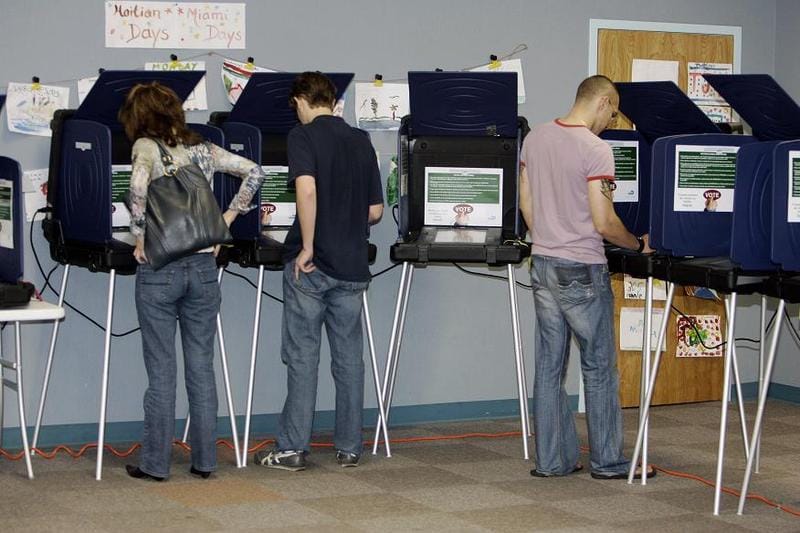Top Two Open Primary vs. Instant Run-Off: which is the best way forward for nonpartisan elections?


Minor parties and their candidates are among the most vocal opponents of Proposition 14, the June ballot measure changing California’s primary system to one in which the top two vote getters advance, regardless of party affiliation.
Opponents say the practical effect of Proposition 14 will be to shut out minor party candidates – Green, Peace and Freedom, Libertarian -- from the general election because their limited registration won’t be enough to lift them into the top two. Doing so deprives those candidates of their most effective bully pulpit, Proposition 14 opponents say.
“Minor party people generally know they’re not going to win. They generally run because there’s something they believe in their heart. They run so they can speak and minor party people generally don’t get much attention paid to them until the major parties have chosen their people,” said Richard Winger, publisher of San Francisco-based Ballot Access News.
Backers of Proposition 14 counter that under an open primary system it’s more likely for a smaller party candidate to reach the November ballot and elected office. In a partisan primary, minor party candidates don’t have access to enough votes to win. In the non-partisan system Proposition 14 would create, they might.
Proposition 14 backers cite counties like San Francisco where independent voters outnumber registered Republicans and in a 2003 mayoral run-off, Gavin Newsom beat Green Party member Matt Gonzalez 53 percent to 47 percent.
Several groups opposing Proposition 14 are supporters of the “instant run-off" election process used by San Francisco since 2004 and recently adopted by Berkeley, Oakland and San Leandro which will hold their first elections under the system this November.
In San Francisco, all candidates run in one election. Voters rank their top three candidate choices. First choice ballots are counted first and if that candidate gets 50 percent plus one, they are the winner. If no one gets a majority, the candidate who received the fewest first-choice votes is eliminated, and votes cast for the eliminated candidate are transferred to the voter's next-choice candidate.
Votes are then recounted. If any candidate receives a majority of the votes, that candidate is declared the winner. If a candidate still hasn’t received a majority, the process of eliminating candidates and transferring votes continues until one does.
On April 20, a federal judge upheld the system, which plaintiffs claimed disenfranchised voters who didn’t choose any of the top three candidates.
Proponents point to the voting method’s cost-savings stemming mainly from only one election in which all candidates run. So far, in California its use has been limited to municipal elections where candidates run on a non-partisan basis. Australia uses instant run-off to elect its House of Representatives. Ireland uses this system to select its president.
Sacramento-based Californians for Election Reform, for example, notes on its website that it is “actively opposing” Proposition 14, in part, because it disenfranchises minor party candidates. A link is provided to a site, Stop Top Two, No on Proposition 14.
However, the group links to the instant runoff voting site of the California IRV Coalition, which has the same telephone number as Californians for Election Reform. The site touts the voting method as increasing turnout and promoting more positive campaigns.
But Proposition 14 backers say expanding the use of instant run-off to statewide elections first requires what the ballot measure seeks to do -- end partisan primaries. “If you’re focused on getting instant runoff, the first thing you would work on is making all our elections – not just municipal -- non-partisan,” said Jason Olson, California director of Independent Voice, a national group working to empower independent voters. “The chief obstacle to implementing instant run-off is the parties want to control the election process. If you’re interested in instant run-off you’ve got to take the partisanship out of the election process.”
Winger acknowledges that statewide primary elections would need to become non-partisan before expanding instant run-off to state races. But he sees no inconsistency in groups opposing Proposition 14 and favoring instant run-off.
“Well at least nobody is shut out of the general election campaign season with instant run-off,” Winger said. “Instant run-off voting is not the ideal situation. I’m pro-political party. But (instant run-off) is far superior to Proposition 14 because it wouldn’t cut anyone out of the campaign season.”



